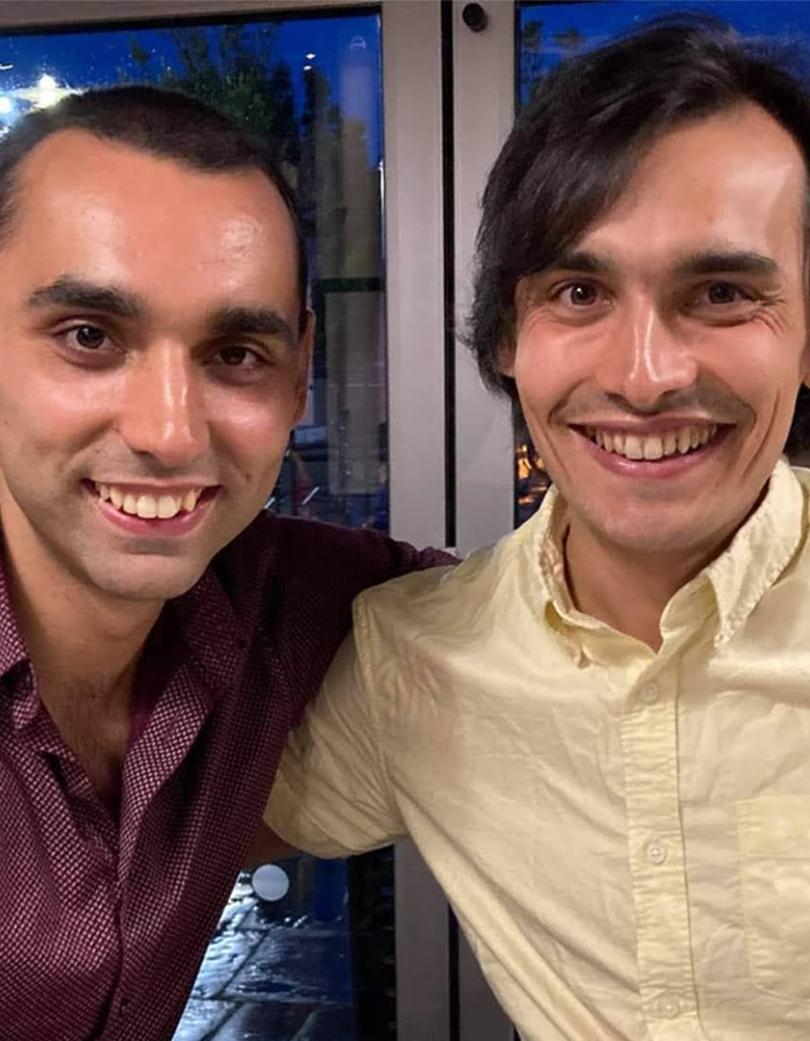Fundraising to keep the memory of a family member alive
-
How to keep advocating for someone when they no longer can.
Stephen Nand-Lal ran the 2024 TCS London Marathon in memory of his brother Matt, who died by suicide at the age of 29. Matt battled with his mental health for the majority of his adult life and Stephen ran to support Mind and make mental health a priority.
Stephen has a very personal connection to Mind, as Matt would make donations to the charity. He also loved being active, from weight training to running, so it felt fitting to run in his brother's memory and show people that marathon running is for everyone. Stephen says: “Anyone can do this, you don’t have to be in the one per cent of super fit people.”
Matt created an environment where others could open up about their own mental health issues, something which Stephen wants to build on so the narrative around mental health continues to change. “I want to raise funds to support Mind’s lifesaving work. I don’t want anyone to experience what my brother did,” he says.
Stephen believes the changing approach to mental health is noticeable in the workplace: “It was harder to talk about mental health a few years ago than it is now, even having support like Mental Health First Aiders wasn’t there before,” he says.
Training for the marathon became a mindful practice in itself for Stephen. “Running has given me a lot of time to process, which is a useful thing going forward I would take from this.”
Stephen also wanted to thank Mind for everything they have done for him. “It can be a lot for family and friends supporting someone. It’s tough because usually you try to sympathise, but with mental health it’s difficult because it’s so personal. Mind’s website is fantastic, the amount of resources and support is amazing.”

Here are Stephen's top fundraising tips.
1) Break it down
Don’t be daunted by your target, use it as a starting point. Stephen says: “Come up with targets for sums you can raise through different means rather than just having one big figure.”
Once you start to break it down, it becomes a lot more manageable.
2) Don’t be afraid to ask
Consider how you tell your story. “Face to face is important. For me, conversations stick with you more,” Stephen says.
Opening up might also help others around you to do so too. Stephen says his brother used to share his experiences, which encouraged others. “He had struggled a lot with mental health issues the last few years and was very vocal in sharing what he had gone through. That helped his friends talk about things they wouldn’t have otherwise.”
You can also use social media to spread your story further. “The more people you can find that will engage with your story, the higher the chances that someone will donate,” Stephen says.
3 ) Approach local businesses
Consider what is in your area, outside your immediate circle of friends and family. It could be local groups or businesses. “There are many people out there looking to support and help good causes,” Stephen explains.
“My brother did work experience for a local food business which has been able to donate, which I wasn’t expecting. That personal connection is good as you already have that existing link,” Stephen says.
Stephen completed the 2024 TCS London Marathon in 03:10:25 and raised over £4,800 for the Mind.